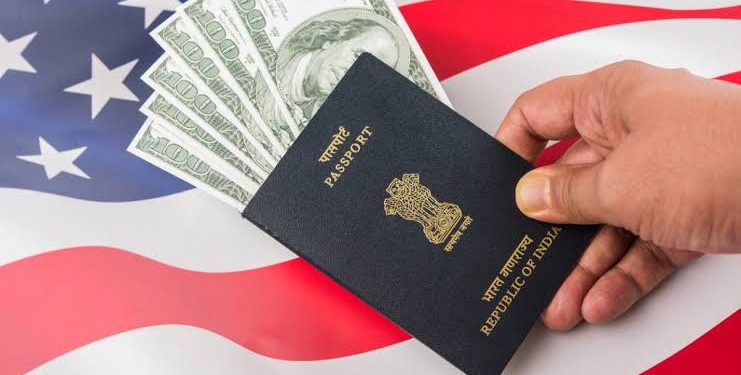The new US visa policy that requires skilled workers applicants to make annual $100.000 fee has taken effect today.
Until now, the skilled workers visa also know as H-1B visas programme attracts administrative fees totalling about $1,500.
The visa which allows foreign walkers entry into the US was reviewed after president Donald Trump signed an executive order increasing the annual fee to $100,000.
The Trump administration cited “abuse” of the programme and makes entry contingent on the payment.
In addition to the new H-1B fee, Trump unveiled a “gold card” visa to fast-track certain immigrants, in exchange for fees starting at £1 million.
Explaining the financial implications for companies, the U.S. Commerce Secretary Howard Lutnick said:
“The company needs to decide… is the person valuable enough to have a $100,000-a-year payment to the government, or they should head home, and they should go hire an American.”
“All of the big companies are on board,” Lutnick said, adding that the $100,000 payment would apply for six years for each applicant.
Reacting to the new policy, Amazon, the largest single recipient of H-1B visas last year, advised employees on Friday to remain in the U.S. if already there
According to an internal memo cited by Business Insider, staff abroad were urged to “try to return before tomorrow’s deadline if possible” and warned not to attempt re-entry after the order takes effect “until further guidance is provided.”
India’s IT trade body Nasscom voiced concern, saying the sudden change created “considerable uncertainty for businesses, professionals, and students across the world.”
India accounted for 71% of H-1B visas issued last year, while China came second with 11.7%, according to government data.
Tahmina Watson, founding attorney at Watson Immigration Law, said the new rule could be a death blow to smaller companies:
“Almost everyone’s going to be priced out. This $100,000 as an entry point is going to have a devastating impact,” Watson said.
“Many small or medium-sized companies will tell you they actually can’t find workers to do the job,” she added.
“When employers sponsor foreign talent, more often than not, they’re doing that because they have not been able to fulfil those positions.”
Jorge Lopez, chair of the immigration and global mobility practice at Littler Mendelson PC, warned that the order could damage US competitiveness: “A $100,000 fee will put the brakes on American competitiveness in the tech sector and all industries,” Lopez said.
“Some companies might consider setting up operations outside the US, though doing so can be challenging in practice.”





































